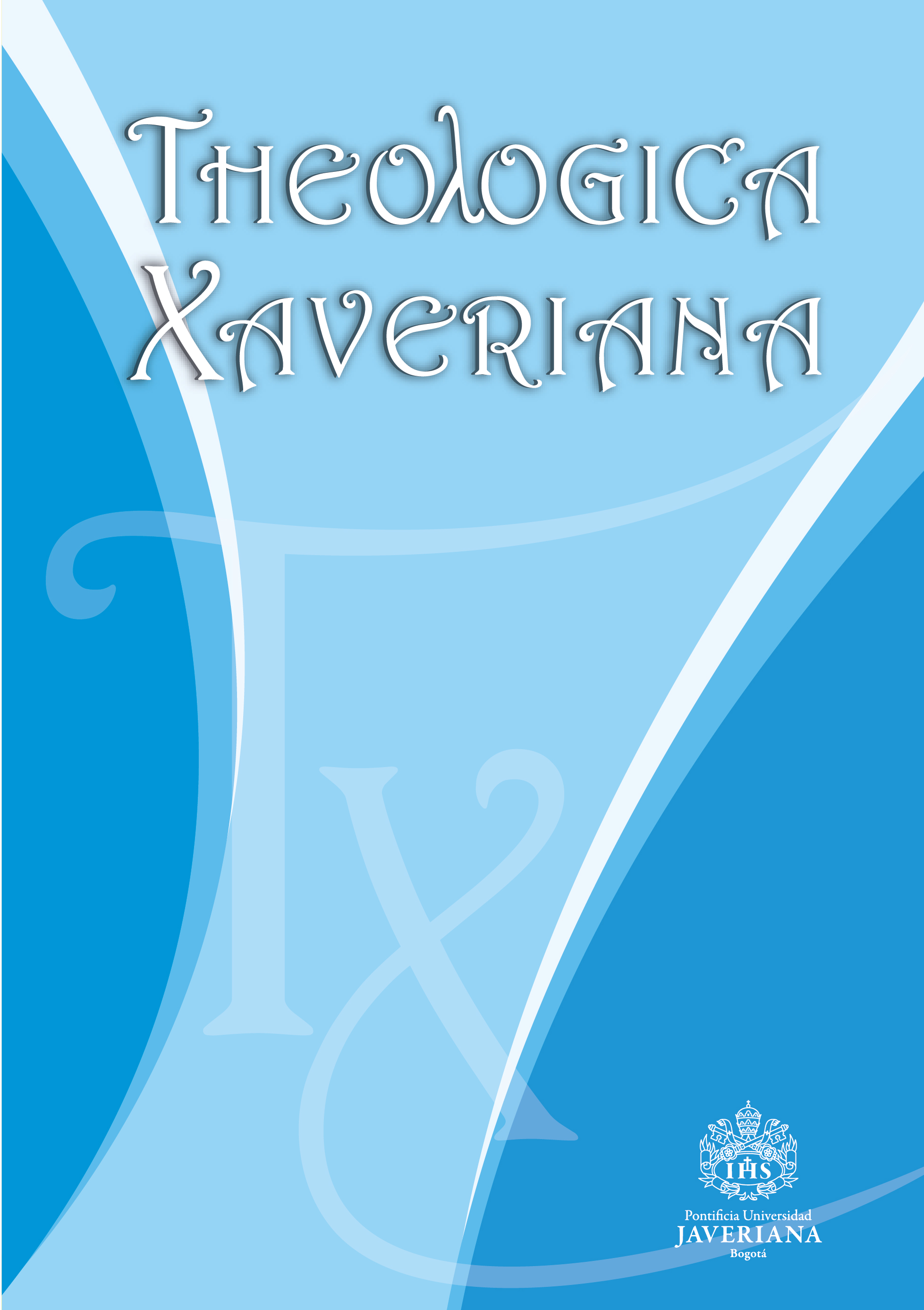Abstract
Within Liberation Hermeneutics, Mk 12:1-12 is a problematic text, from a theological and socioeconomical point of view. An analysis of the parable from the perspective of several land conflicts in Palestine, on the first century, questions the traditional allegorical reading of this text, and allows it to speak as a critique of the economic abuses against the peasantry. Using the Gospel of Thomas, this research will suggest that to imagine Jesus’s God as a powerful landowner is inadequate and unthinkable among some Christian movements of the half of the first century.
Bailey, James L. y Lyle D. Vander Broek. Literary Forms in the New Testament. A Handbook. Louisville (KY): Westminster/John Knox Press, 1992.
Boring, M. Eugene. Mark: A Commentary. Louisville (KY): Westminster/John Knox Press, 2006.
Briglia, Sergio. “Marcos”. En Comentario bíblico latinoamericano Nuevo Testamento, dirigido por A. Levoratti, 401-470. Estella (Navarra): Verbo Divino, 2007.
Chaney, Marvin. “Micah – Models Matter: Political Economy and Micah 6.9-15”. En Ancient Israel: The Old Testament in its Social Context, editado por Philip Esler, 145-160. Minneapolis (MN): Fortress Press, 2006.
Clines, David. Interested Parties: The Ideology of Writers and Readers of the Hebrew Bible. Sheffield (U. K.): Sheffield Academic Press, 1995.
Cook, Guillermo, y Ricardo Foulkes. Comentario bíblico hispanoamericano: Marcos. Miami (FL): Editorial Caribe, 1993.
Crossan, John Dominic. “Parable”. En The Anchor Bible Dictionary, editado por David Noel Freedman 5, 146-152. New York (N. Y.): Doubleday, 1992.
Dodd, C. H. Las parábolas del Reino. Madrid: Cristiandad, 1974.
Escuela Bíblica y Arqueológica de Jerusalén (trad. y ed.). Biblia de Jerusalén. Bilbao: Desclée de Brouwer, 2007.
Evans, Craig. Word Biblical Commentary: Mark 8:27-16:20. Nashville (TN): Thomas Nelson Publishers, 2001.
Foerster, W. y G. Quell. “κύριος”. En Theological Dictionary of the New Testament. Vol. III, por G. Kittel. Grand Rapids (MI): Eerdmans Publishing, 1966.
Gnilka, Joachim. El Evangelio según San Marcos. Vol. 2. Salamanca: Sígueme, 2001.
Herzog, William. Parables as Subversive Speech: Jesus as Pedagogue of the Oppressed. Louisville (KY): John Knox Press, 1994.
_____. Prophet and Teacher. An Introduction to the Historical Jesus. Louisville (KY): Westminster/John Knox Press, 2005.
Horsley, Richard. Covenant Economics: A Biblical Vision of Justice for All. Louisville (KY): Westminster/John Knox Press, 2009.
_____. Jesus and the Spiral of Violence. Popular Jewish Resistance in Roman Palestine. Minneapolis (MN): Fortress Press, 1993.
Josephus. The Jewish War. Vol. II. Books 3-4. Editado por H. ST. J. Thackeray. Cambridge (MA): Harvard University Press, 1927.
Kloppenborg, John. Tenants in the Vineyard: Ideology, Economics and Agrarian Conflict in Jewish Palestine. Tubingen: Mohr Siebeck, 2006.
Koester, Helmut, y Thomas Lambdin. “The Gospel of Thomas”. En Nag Hammadi Library in English, por James Robinson, 117-130. San Francisco (CA): Harper and Row Publishers, 1978.
Lacueva, Francisco (dir.). Reina-Valera 1977. Barcelona: Clie, 1977.
Mahecha, Guido. “Parábolas en clave latinoamericana (y algo irreverente)”. Hermenéuticas de gracia y liberación. Aportes bíblicos 6-7 (2008): 7-50.
Mann, C. S. The Anchor Bible Dictionary: Mark. New York (N. Y.): Double Day, 1986.
Mosala, Itumeleng. Biblical Hermeneutics and Black Theology in South Africa. Grand Rapids (MI): William Eerdmans Publishing Company, 1989.
Myers, Ched. Binding the Strong Man. A Political Reading of Mark’s Story of Jesus. Maryknoll (N. Y.): Orbis Books, 2008.
Pikaza, Xavier. Evangelio de Marcos. La Buena Noticia de Jesús. Estella (Navarro): Verbo Divino, 2012.
_____. Pan, casa, palabra. La Iglesia en Marcos. Salamanca: Sígueme, 1983.
Pronzato, Alessandro. Un cristiano comienza a leer el Evangelio de Marcos. Vol. II. Salamanca: Sígueme, 1983.
Schiavo, Luigi. La invención del diablo: cuando el otro es problema. San José de Costa Rica: Lara Segura y Asociados, 2012.
Ricciardi, Ramón (dir.). La Biblia latinoamericana. Madrid-Estella (Navarra)-Valencia: Paulinas-Verbo Divino-Editorial Alfredo Ortells, 1972.
Sociedad Bíblica Internacional. Santa Biblia. Nueva versión internacional. Miami (FL): Sociedad Bíblica Internacional, 1999.
Trible, Phyllis. Texts of Terror. Literary-Feminist Readings of Biblical Narratives. Philadelphia: Fortress Press, 1984.
Van de Hoek, Annewies. “Allegorical Interpretation”. En Dictionary of Biblical Criticism and Interpretation., por S. Porter, 9-11. London: Routledge, 2007.
Walsh, Jerome. Old Testament Narrative. A Guide to Interpretation. Louisville (KY): John Knox Press, 2009
West, Gerald. “Tracking an Ancient Near East Economic System: The Tributary Mode of Production and the Temple State”. Old Testament Essays 24/2 (2011): 511-532.
Yee, Gale. “Ideological Criticism: Judges 17-21 and the Dismembered Body”. En Judges and Method: New Approaches in Biblical Studies, por G. Yee, 138-160. Minneapolis (MN): Fortress Press.
This journal is registered under a Creative Commons Attribution 4.0 International Public License. Thus, this work may be reproduced, distributed, and publicly shared in digital format, as long as the names of the authors and Pontificia Universidad Javeriana are acknowledged. Others are allowed to quote, adapt, transform, auto-archive, republish, and create based on this material, for any purpose (even commercial ones), provided the authorship is duly acknowledged, a link to the original work is provided, and it is specified if changes have been made. Pontificia Universidad Javeriana does not hold the rights of published works and the authors are solely responsible for the contents of their works; they keep the moral, intellectual, privacy, and publicity rights.
Approving the intervention of the work (review, copy-editing, translation, layout) and the following outreach, are granted through an use license and not through an assignment of rights. This means the journal and Pontificia Universidad Javeriana cannot be held responsible for any ethical malpractice by the authors. As a consequence of the protection granted by the use license, the journal is not required to publish recantations or modify information already published, unless the errata stems from the editorial management process. Publishing contents in this journal does not generate royalties for contributors.



